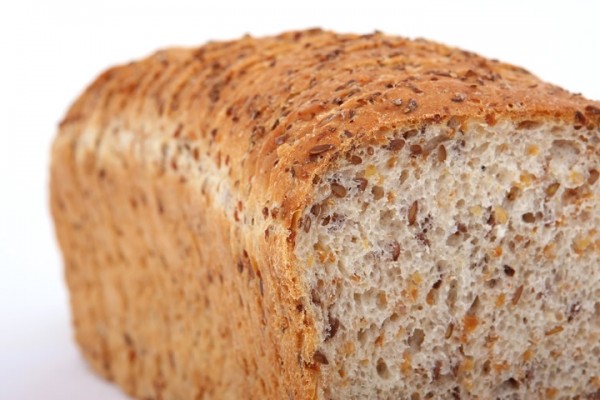Whole Wheat or Whole Grain? Which Is the Better Choice, According To Experts
Are you one of the many who get confused by the difference between whole grains and whole wheat? Well, at least in terms of health, they seem the same.
Health and nutrition experts say whole grains can comprise of "products from a host of different plants," which include barley, corn, wheat, oats, and rice, while whole wheat products can come solely from wheat.
Meaning, whole wheat is considered a type of whole grain. The similarity between the two is actually the word 'whole.'
When we say 'whole,' it means that all parts of the grain seed, which include the bran, germ, and endosperm, are intact. Therefore, we're getting the maximum nutrition and succeeding health benefits from that particular product.
Both whole wheat and whole grain products are said to be an essential part of a healthy diet. Nevertheless, it is easy to be deceived into purchasing products covering up as a healthy choice but are actually not. It is then essential that we know what we're looking for when we're shopping.
ALSO READ: Avocado for Weight Loss? Know the Wonders of this Fruit

Both whole wheat and whole grain products are said to be an essential part of a healthy diet, but it is easy to be deceived into purchasing products covering up as a healthy choice but are actually not.
Whole Against Refined Grains
Foods, including cereal, bread, pasta, and rice, are all examples of grains. But not all versions of these products are considered a whole grain. Some less nutritious options are made from refined grains.
Studies have that aside from having lesser vitamins and minerals, and refined grains contain 25 percent protein than whole grains.
Grains are plants, and we eat their seeds. When whole grain products are made, all three edible parts of their seed remain intact, while refined grains contain just the endosperm, which lacks the min vitamins and minerals.
Bran is the seed's outer part containing fiber, antioxidants, and B vitamins. Germ, on the other hand, is the seed's embryo part with the potential to develop into a new plant. It has B vitamins, minerals, healthy fats, and proteins.
As to the endosperm, it has the food supply for the germ. It also contains protein and carbohydrates, but with few vitamins and minerals.
Compared with the other grain types, registered dietary nutritionist Cynthia Delebahan said, whole grains are "better sources of fiber and other essential nutrients like B vitamins, iron, folate, selenium, and potassium, among others."
Delabahan, who is affiliated with Santa Clara Valley Medical Center in San Jose, California, also said one could spot refined grain products in-store, being labeled with "multigrain and seven-grain."
Multigrain means the product has multiple train types, although it does not promise that such grains have all of the seeds' three parts. For that, the expert suggested that "whole grain should be labeled on the packaging."
DON'T MISS THIS: Why Stress Makes One Overeat or Not Eat at All, and How to Overcome It
All-Whole Wheat Product, a Type of Whole Grain
For whole wheat, there are various options, and some are not as healthy as the others. To guarantee you are receiving the maximum health benefits possible, search for products labeled "100 percent whole wheat."
These all-whole wheat products are made exclusively from wheat and have bran, germ, and endosperm content. If the product does not indicate 100-percent whole-wheat, then it is perhaps, a blend of whole and refined wheat grains.
For instance, wheat flour is 75-percent white flour, and only 25-percent whole wheat, that then, is an example of refined grain instead of whole grain.
In general, according to a registered dietitian, Cesar Sauza, focusing on consuming whole grains, "is a part of a healthy nutritional approach."
He added we should always opt for whole grains when given a choice. Nowadays, he also explained, there are the so-called "whole-grain versions of almost everything," but we should always choose whole grains for pasta and rice, to name a few.
IN CASE YOU MISSED IT: Is Excessive Exercise Linked to Eating Disorders? Here's What Studies Say
Check out more news and information on Whole Wheat and Whole Grain on MD News Daily.
Oct 20, 2020 12:00 PM EDT





